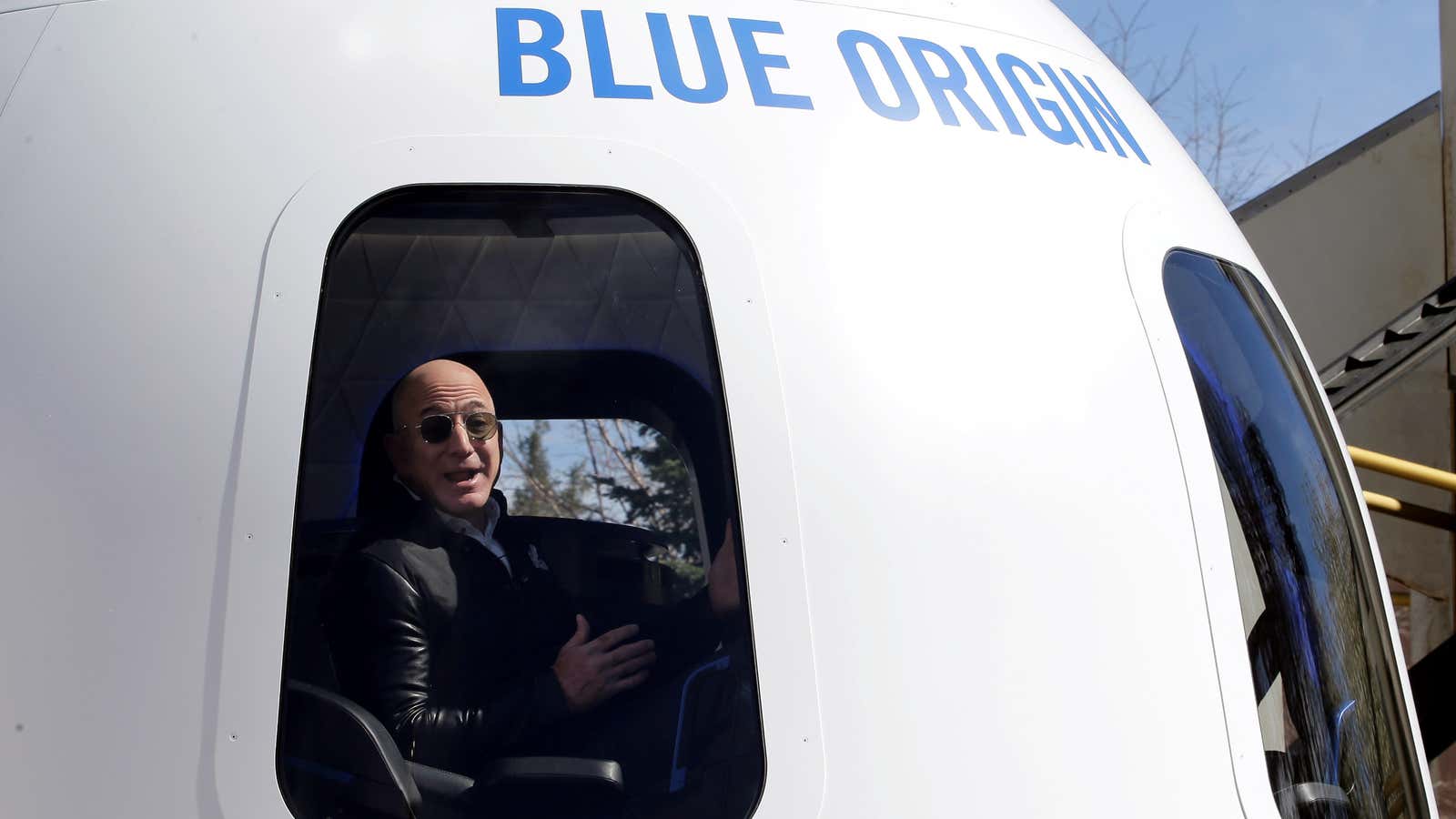Jeff Bezos says he’s not racing Elon Musk into space—but he is competing with him.
Last week, Blue Origin, the rocket firm founded and funded by Jeff Bezos, won a $500-million government contract to develop its New Glenn rocket to launch military and spy satellites for the US government. Elon Musk’s SpaceX, which currently provides this service, didn’t win one of the sought-after development contracts, though it could compete for the final launch contracts in 2020.
“There really isn’t much of a relationship between the two companies,” Bezos told an interviewer today (Oct.15) at an event for Wired magazine’s 25th anniversary. “We’re competitors.”
Asked about the timing of his plans to begin operating a space tourism business with Blue Origin’s New Shepard Rocket, which has slipped from 2018 to 2019, Bezos said “I keep telling my team, it’s not a race.”
That’s not quite the internal perception at either company. Blue Origin has been operating in the shadow of Musk’s bombast and SpaceX’s undeniable successes since both were founded at the turn of the century. The two founders even met in 2003 to talk about a potential combination of the two companies. They have fought over everything from potential launch sites to intellectual property, with the owners throwing down on Twitter over who, exactly, flew the first reusable rocket. Musk arguably won that contest with the first re-use of a vertical takeoff and landing orbital rocket in 2017.
As Blue Origin’s own technology development came to fruition, starting with New Shepard test flights in 2015, the two rivals have started to approach parity. Blue Origin is set to be a major player in the launch game as it builds engines for the Boeing and Lockheed Martin joint venture United Launch Alliance and markets its own reusable New Glenn, expected to debut sometime after 2020.
Bezos says competition between individual firms is the wrong way to look at the emerging private space sector.
“My view on this is, this is a big industry, there’s room for lots of winners,” he said. “If we are going to achieve for humanity what I want to achieve, we need thousands of companies.”
What he wants to achieve is a future where millions of people live and work in space, while Musk is a passionate advocate of Mars colonization. Though critics question their solar system-sized visions, both believe that driving down the cost of space access with reusable rockets is the key to realizing them. The Amazon founder blamed the perception of cutthroat competition between the two companies on the media’s love of athletic metaphors.
“Sports is a very damaging metaphor for business,” he said. “In business, usually industries rise and fall. There really can be multiple winners and there often are. I don’t like winner-take-all industries because your odds of winning are low.”
At least when it comes to putting military satellites in space, only two rocket-makers will win the next set of government contracts up for bid in 2020. With powerful, established defense contractors competing, Blue Origin and SpaceX are set for something of a zero-sum competition.
Ethically speaking, the lucrative work of launching military hardware, as well Amazon’s various contracts with the Defense Department, don’t keep Bezos up at night.
“If big tech companies are going to turn their back on the US Department of Defense, we’re going to be in trouble…this is a great country and it does need to be defended,” he said, arguing that divisive contemporary politics can obscure the value of American society.
